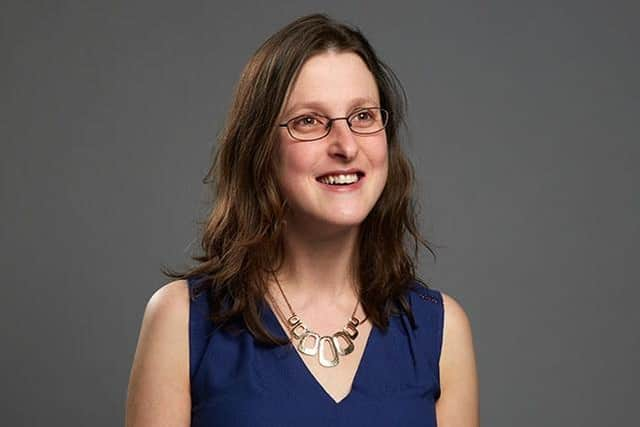British Science Week is an opportunity to look at how we can tackle inequalities in science - Dr Melissa Lacey
But women, the LGBTQ+ community, the working class and people of colour have all historically and persistently been underrepresented and underserved by science.
Upon entering the workforce, approximately 44 per cent of “science professionals” are women. However, the number of women in senior scientific roles is substantially lower than men, for example only ~9 per cent of UK chemistry professors are female. This lack of representation is worsened when considering ethnicity, with only 0.6 per cent of science professors in the UK being Black.
Advertisement
Hide AdAdvertisement
Hide AdYorkshire and the Humber also sees fewer of its population in professional scientific and technical jobs, 6.5 per cent compared to 9.3 per cent seen across the UK.


We already know that when wide demographics of our population are not involved in a field, they are overlooked. Women’s health issues are chronically under-researched and under-diagnosed. A heartbreaking example is endometriosis, which affects 1.5 million women in the UK, with the average patient waiting over seven years for a diagnosis to then be faced with limited treatment options.
Globally, nationally, and regionally we are facing an unpredicted number of challenges: the climate crisis, plummeting biodiversity, plastic and water pollution, the cost-of-living crisis and subsequent increases in poverty and an overstretched and under-resourced health service.
As seen in the Covid-19 pandemic, complex challenges often rely on science for part of their solution, and we need a diverse scientific workforce to help us tackle these challenges.
Advertisement
Hide AdAdvertisement
Hide AdAt Sheffield Hallam University, our first challenge is to empower the region’s young people to believe they could be a scientist.
As a university, we’re committed to widening access to higher education and enabling social mobility. Our commitment spans working with local schools and colleges, our degree programmes and the public. In the last 18 months, we have welcomed 1,500 students from local schools and colleges into our laboratories for practical classes. Giving these students a taste of what it’s like to be a science undergraduate and the opportunity to access specialist equipment and expertise their schools do not have.
Our undergraduate students have become great role models for the region’s young people. For the past two years they have worked with over a thousand 12–13-year-olds in communities that have few students progressing into higher education and are currently working with A-Level Chemistry students, running projects and being accessible and visible mentors.
This year, we’re inviting year 10 pupils from across the region to our International Women’s Day event, where we hope to inspire them to pursue careers across biosciences, chemistry, physics, and engineering.
Advertisement
Hide AdAdvertisement
Hide AdWe’re also hoping to make science more accessible to the wider public, hosting events in collaboration with local organisations, such as Sheffield Museums Trust, for an art and science mash-up event.
Through all this work, we’re hoping to increase the uptake of science degrees across the region and encourage those across our communities to see themselves as scientists.
Dr Melissa Lacey is senior lecturer in microbiology at Sheffield Hallam University.
Comment Guidelines
National World encourages reader discussion on our stories. User feedback, insights and back-and-forth exchanges add a rich layer of context to reporting. Please review our Community Guidelines before commenting.